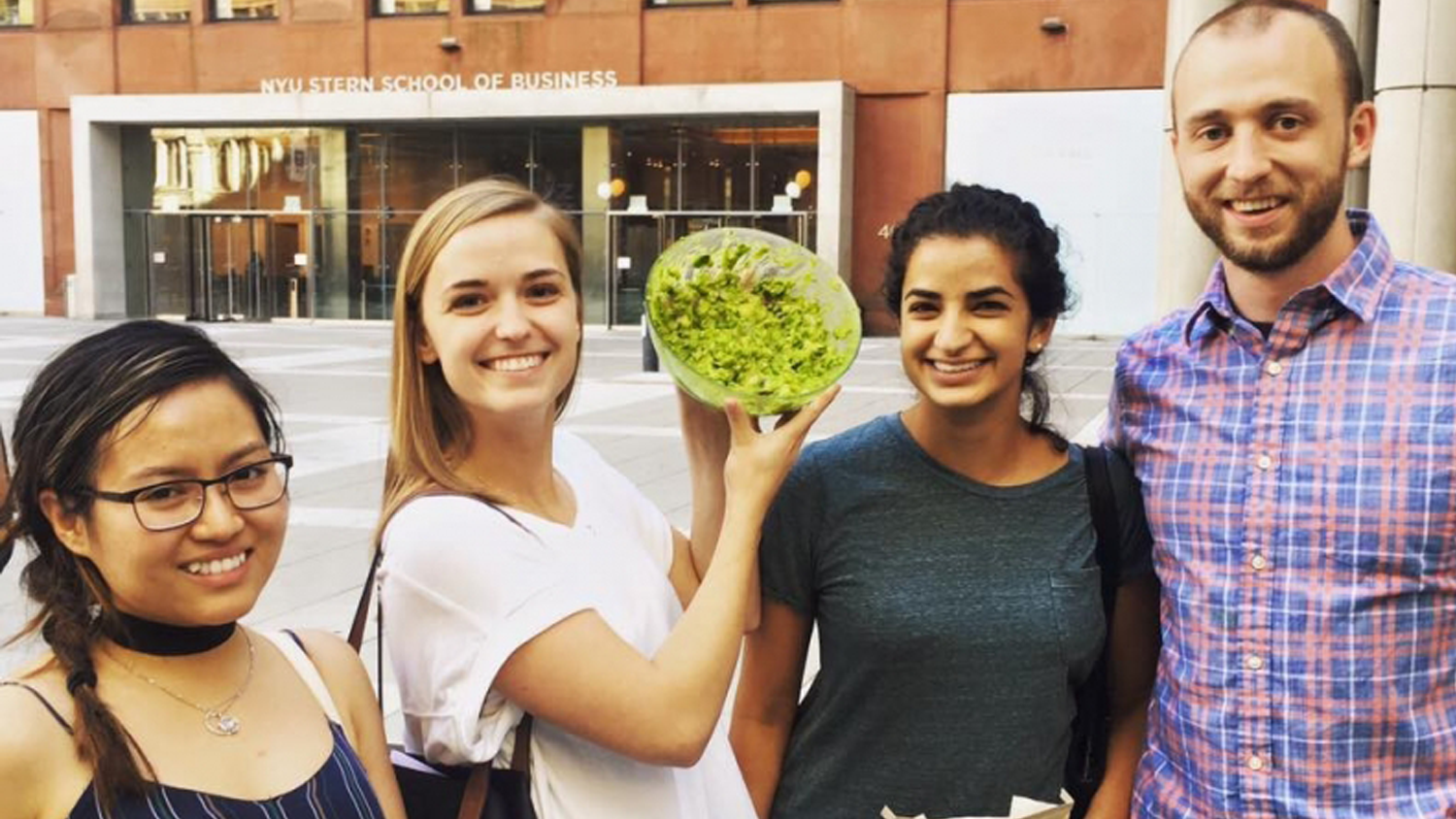Integrating Sustainability into Everyday Learning

At the Poole College of Management, home base for the Business Sustainability Collaborative (BSC) at NC State, professors teaching in various academic disciplines have been weaving an increasingly important common thread into their courses: sustainability.
For marketing students learning about the acquisition > consumption > disposition cycle in their consumer behavior course this semester, for example, that means adding sustainability as a factor to consider when predicting and influencing consumer behavior throughout the cycle.
Their instructor, Stefanie Robinson, assistant professor of marketing in the college’s department of business management, is one of four Poole College professors who received BSC curriculum development grants.
In her course, Robinson teaches that since marketing begins and ends with the consumer, marketers need to explore ways to better predict and influence behavior – including sustainable behavior – throughout the consumer behavior cycle. For example, how do consumers decide whether to purchase sustainable products (acquisition)? Do consumers use environmentally friendly products as intended (consumption)? What determines whether consumers recycle products (disposition)? She has developed three modules that address these areas. In a course segment on consumer research, the students participate in a survey regarding individual preferences toward sustainable and innovative products and discussing how marketers can use this type of data to position sustainable products in the market.
In a section on “Marketing, Ethics and Social Responsibility in Today’s Consumer Society,” students learn about and discuss what influences conservation and charitable behavior and what marketers can do to influence consumers’ environmentally conscious behavior.
The students have also been learning about the importance of that final step in the consumer cycle – disposing of the product – by looking at their own personal behavior regarding their possessions. They are reviewing a case study and developing a plan for cell phone companies to keep discarded cell phones out of landfills as part of this segment.
Robinson’s goal in incorporating these sustainability factors into her consumer behavior course was to teach students how to make research-based marketing decisions and to be better consumers themselves.
She and the other BSC grant recipients reported on their sustainability teaching modules at a faculty update at Poole College on March 23. This is the second year that BSC has funded curriculum development grants for the faculty. BSC also is funding sustainability research grants.
Sustainability in Human Resource Management
Students in one of the college’s required human resource management courses – a large lecture hall course with students from across the various disciplines at Poole College – learned about sustainability as part of a module on metrics used in the various facets of managing human resources.
Beth Ritter, a lecturer in human resource management, developed the module to introduce students to the Global Reporting Initiative (GRI) – the most widely used sustainability reporting framework. Tiffany & Co. was among the nine companies whose reports were reviewed by the students.
In its 2015 report, for example, Tiffany details its “latest progress” on various factors covered by GRI and the United Nations Global Compact Reporting frameworks: responsible mining, packaging, operations, diversity and charitable giving.
In developing a module for her class of 355 accounting, business and economics students (MIE 330), Ritter created 27 Moodle quizzes – three versions for each of the nine companies studied – and videotaped a presentation by colleague Scott Showalter, professor of practice in the Department of Accounting, on the sustainability standards reporting process.
For those quizzes, the students focused especially at a portion of the GRI report covering labor practices and decent work, human rights, societal factors and product responsibility. Student feedback was positive, and Ritter is including the module when teaching the course this semester.
Accounting for Sustainability Measures
Kathy Krawczyk, Dixon Hughes Professor of Accounting and director of the college’s Master of Accounting program, teamed up with Showalter to integrate the topic of environmental remediation costs into the accounting and tax research course (ACC 533) which focuses on the process for researching issues faced by accounting professionals.
Throughout the semester, the students studied financial, tax, and audit cases built around the same set of facts. The cases included information about environmental remediation costs pertaining to a real company. Students reviewed the three related group cases and white papers, and developed written responses for each issue that were subsequently discussed in class. Students provided positive feedback on the course, citing the knowledge gained about sustainability applied in the context of accounting, tax, and auditing.
The professors will be writing a case report for submission to an academic journal, and will include an updated version of the module when teaching the course in fall 2016.
Innovation + Sustainability
Leigh Shamblin, lecturer in the Department of Management, Innovation and Entrepreneurship and director of the Master of Global Innovation Management Program (MGIM), incorporated sustainability as a driver of innovation into the MGIM curriculum to help the students become more effective innovation management practitioners.
She began incorporating sustainability content and tools for analyzing sustainability related impacts first into an MBA communications course in fall 2015. In that course, MBA students identified sustainability as one of the top three issues that businesses need to pay attention to in an essay assignment. Sustainability-content was also a top student choice for the critical thinking analysis assignment.
In spring 2016, after MGIM students received foundational knowledge on sustainability in another MGIM class, Shamblin asked them to build on this knowledge by envisioning a more sustainable future world. Working in six innovation project teams, students had to draw and then describe the envisioned world to their classmates. Each team then had to identify ways in which their innovation project sponsor companies could create value with their products and services in the future world. Before the semester ends, MGIM students will participate in a sustainability focused design game and will include sustainability related recommendations into their final project presentations.
Shamblin intends to build on what she’s learned in developing the new modules by offering a new one-credit “Design for Sustainability” course in fall 2016.
Read about faculty research supported by BSC Faculty Research Grants.


